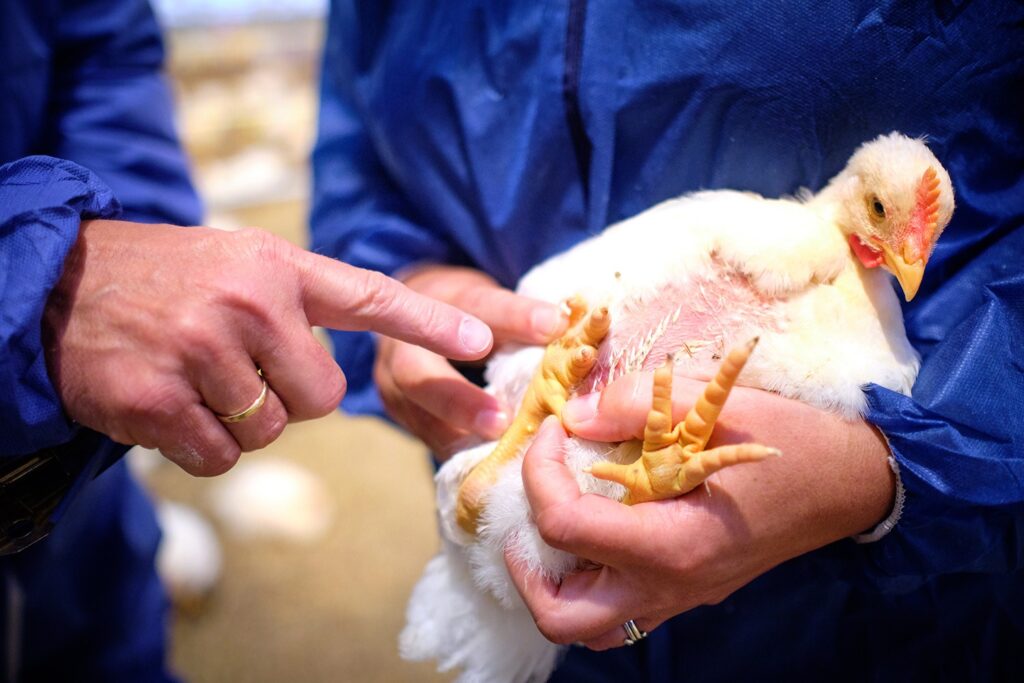Regarding the three challenges focused on Animal Health Management, 45 good practices (GPs) were collected by the BINs from 12 different European countries in the first consulation cycle of the BroilerNet project. A total of 18 GP dealt with improvement of biosecurity, 10 with the fight against avian influenza infection on poultry farms and, lastly, 17 GPs proposed strategies to reduce antimicrobial use in broiler farms.
GPs related with reinforcement of biosecurity in broiler farms were very diverse. From implementing the use of separate equipment and clothing for each poultry house, to build changing rooms and sanitary barriers in each of the poultry houses or restrict the access of wild animals and visitors by building a fence around the farm. Water quality management to prevent transmission of water-borne diseases was also suggested as a critical point to improve biosecurity, as well as perimeter paving of the poultry houses to facilitate cleaning as well as prevent the entry of rodents and other vectors.
For the fight against avian influenza, the number of collected GPs was lower, but innovative practices to prevent viral contamination of farms such as individual farm assessment of the risk of entry of the virus or the implementation of strict desinfection protocols for all farm facilities and equipment were proposed. Other interesting GPs were related to the early detection of sick birds or the use of indoor euthanasia to prevent viral dissemination among farms.
A large variety of GPs addressing the antimicrobial reduction challenge were compiled. Different nutritional strategies, such as the use of phytobiotics or prebiotics, the use of whole wheat or even the addition of worms in the feed were proposed. Water circulation central heating was also considered to be a GP with a clear impact on the health of the birds, reducing the use of antimicrobials. The use of renewable energy for the heating was also considered an added value in this GPs in terms of environmental sustainability.
Dr. Natàlia Majo (WP4 leader)




